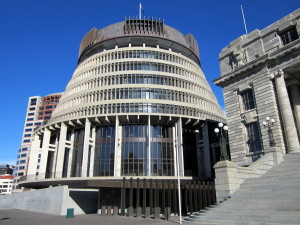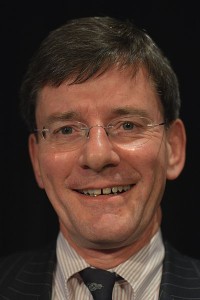Political Kombat The Arts: Christopher Finlayson
- Editor
- 0
- Posted on
 Chris Finlayson, Minister for Arts, Culture and Heritage (and some other things not relevant to this):
Chris Finlayson, Minister for Arts, Culture and Heritage (and some other things not relevant to this):
“New Zealand artists are making it big on the world stage – but don’t get the same public recognition as our high-performing athletes. Does this need to be addressed, and if so, how would you address it?”
The premise of this question is wrong. The arts don’t need to be compared to sports; no one needs to choose one or the other.
It’s also an incorrect premise because the people who create and produce arts in this country, in my experience, don’t sit around complaining that they get too little recognition. Artists want an audience, not platitudes nor premature retrospectives. They just get on and do it.
It could be true that artists aren’t always recognised. If this is a way of saying that New Zealand has an under-developed culture of celebrity, then the question may be what is wrong with that? Many people would not recognise the players of the New Zealand Symphony Orchestra walking down the street. Lorde, aka Ella Yelich O’Connor, didn’t release a press photo until her song (later a US number 1 for nine weeks) had been downloaded 60,000 times.
 But we can recognise the NZSO playing a classical piece. The world recognises Lorde’s voice, and her song Royals. Their art is instantly recogniseable.
But we can recognise the NZSO playing a classical piece. The world recognises Lorde’s voice, and her song Royals. Their art is instantly recogniseable.
Audience can mean any number of things. It can mean 8,000 people at the Vector arena. It could mean the number of people who download songs, or the thousands of people who will have read The Luminaries by Eleanor Catton over summer, in the last few months, and in the literally decades that the book will remain relevant and alive in New Zealand’s literary culture. It could mean a single, possibly even hypothetical, person the artist had in mind when making their work.
It’s no revelation that you can fit more people into Eden Park than into the Wellington Town Hall. And it is meaningless to compare public-facing endeavours like rugby or pop music with more solitary pursuits, like novel writing or long-distance running.
Unlike sports, in which there are winners and losers, the arts delve into and consider the depths of the human experience. This can be a very personal and subjective matter indeed. The worth gained from experiencing art of the caliber we produce in this country is not going to be covered by a sum of money, or in a two minute news story.
As Arts Minister, I acknowledge that funding is vital to the on-going success of our creative talent. The Government increased funding for the performing arts to cushion the impact of the global financial crisis on institutions hit by falling corporate sponsorship. This protected infrastructure and experience in the arts from being lost over lean years, which may have proved irreplaceable.
However, the Government can no more build an audience from scratch than it can force artists to create works of genius on command. Artists build audiences.
I’m often asked about funding decisions made by arm’s length bodies such as Creative New Zealand. Those decisions are not my call to make as a politician. I’m not Stalin, directing Shostakovich to compose symphonies celebrating the new electricity lines network.
We can, however, increase opportunities for participation. I am pleased with the progress of Sistema Aotearoa, a programme I started in partnership with the Auckland Philharmonia Orchestra which teaches Otara primary school children classical music. These children are having their experiences broadened. An evaluation of the program by AUT’s Institute of Public Policy last year found that the program had increased confidence and given the children hopes and dreams for their future beyond what they had ever imagined. Three years on, the programme’s retention rate is 92%.
So how can we recognize the achievements of our artists more? Engaging with their work seems to me the best way one of the best ways to honour it. I encourage anyone to participate in the arts – exhibitions, readings, concerts – and to applaud, and to moreover, to debate what they have seen, to consider it fully, and to talk about it with others.
To read Jacinda Ardern’s piece on this, go here.
CHOOSE YOUR DESTINY
If you want to support the Ruminator, please consider making a donation via Givealittle.

